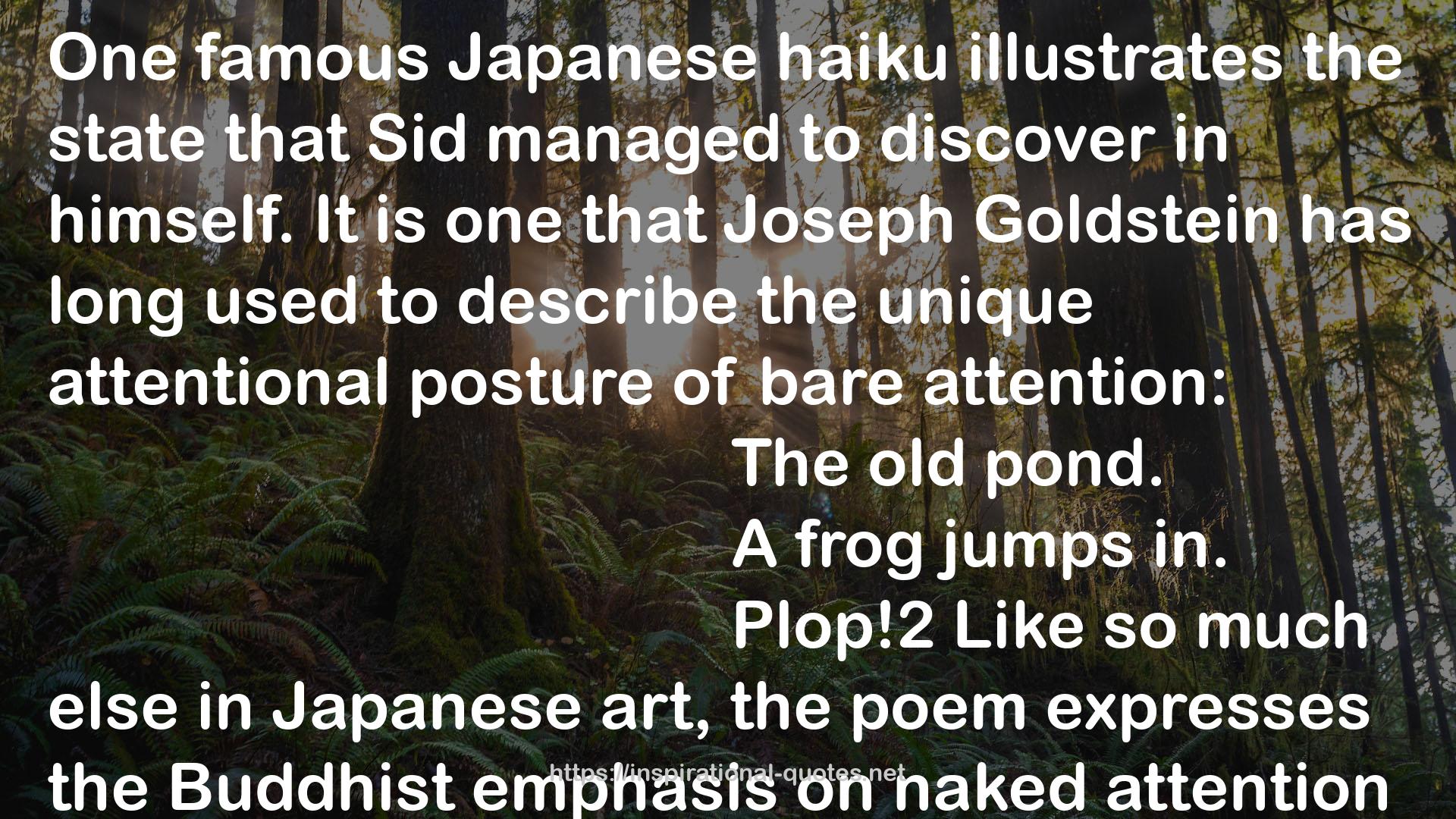" One famous Japanese haiku illustrates the state that Sid managed to discover in himself. It is one that Joseph Goldstein has long used to describe the unique attentional posture of bare attention: The old pond. A frog jumps in. Plop!2 Like so much else in Japanese art, the poem expresses the Buddhist emphasis on naked attention to the often overlooked details of everyday life. Yet, there is another level at which the poem may be read. Just as in the parable of the raft, the waters of the pond can represent the mind and the emotions. The frog jumping in becomes a thought or feeling arising in the mind or body, while “Plop!” represents the reverberations of that thought or feeling, unelaborated by the forces of reactivity. The entire poem comes to evoke the state of bare attention in its utter simplicity. "
― Mark Epstein , Thoughts Without A Thinker: Psychotherapy From A Buddhist Perspective
